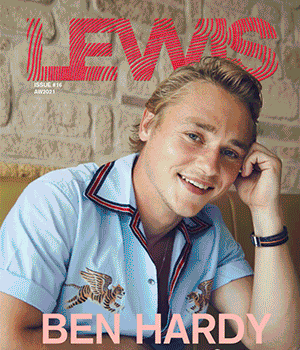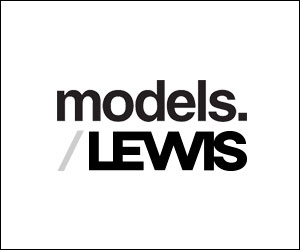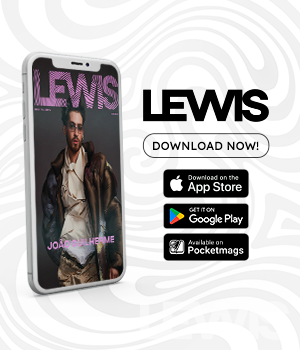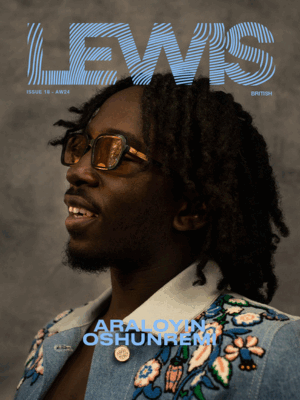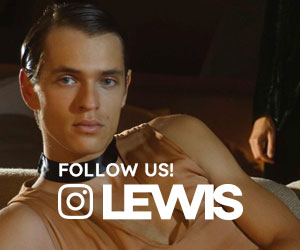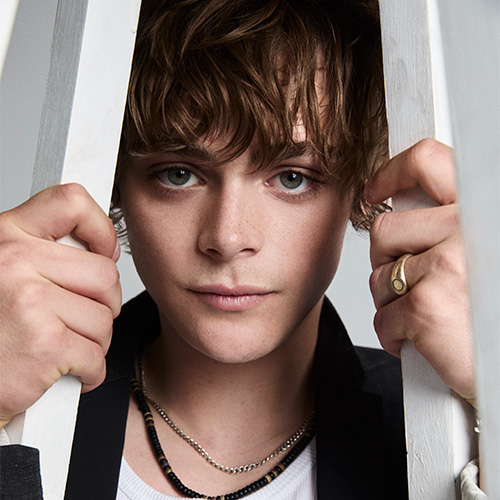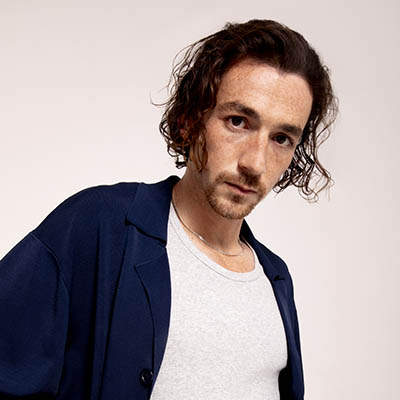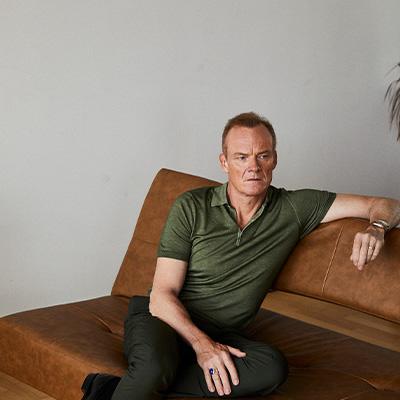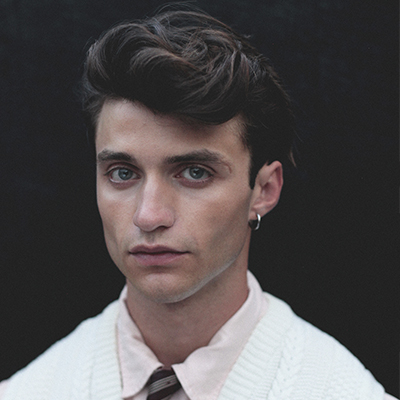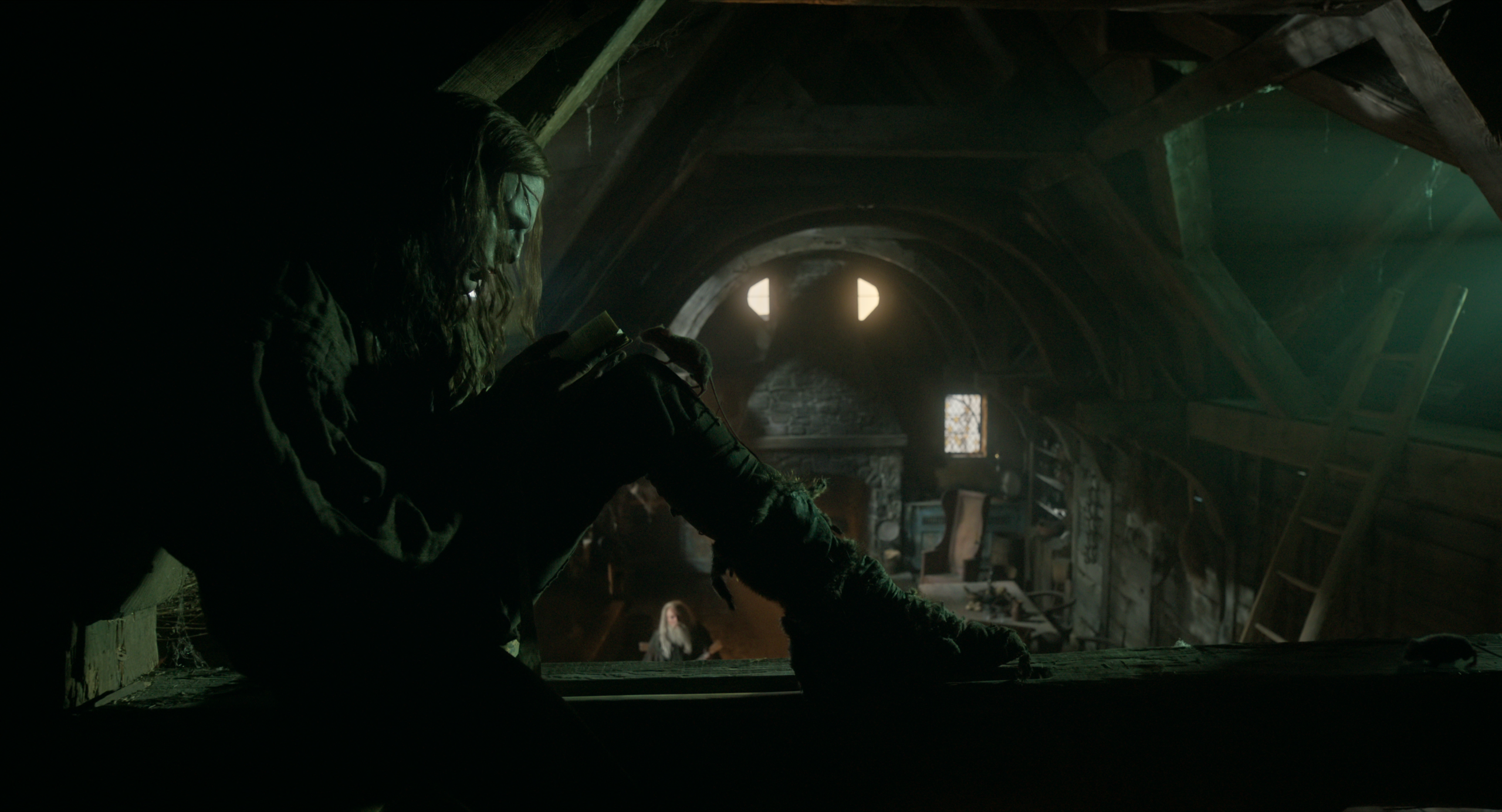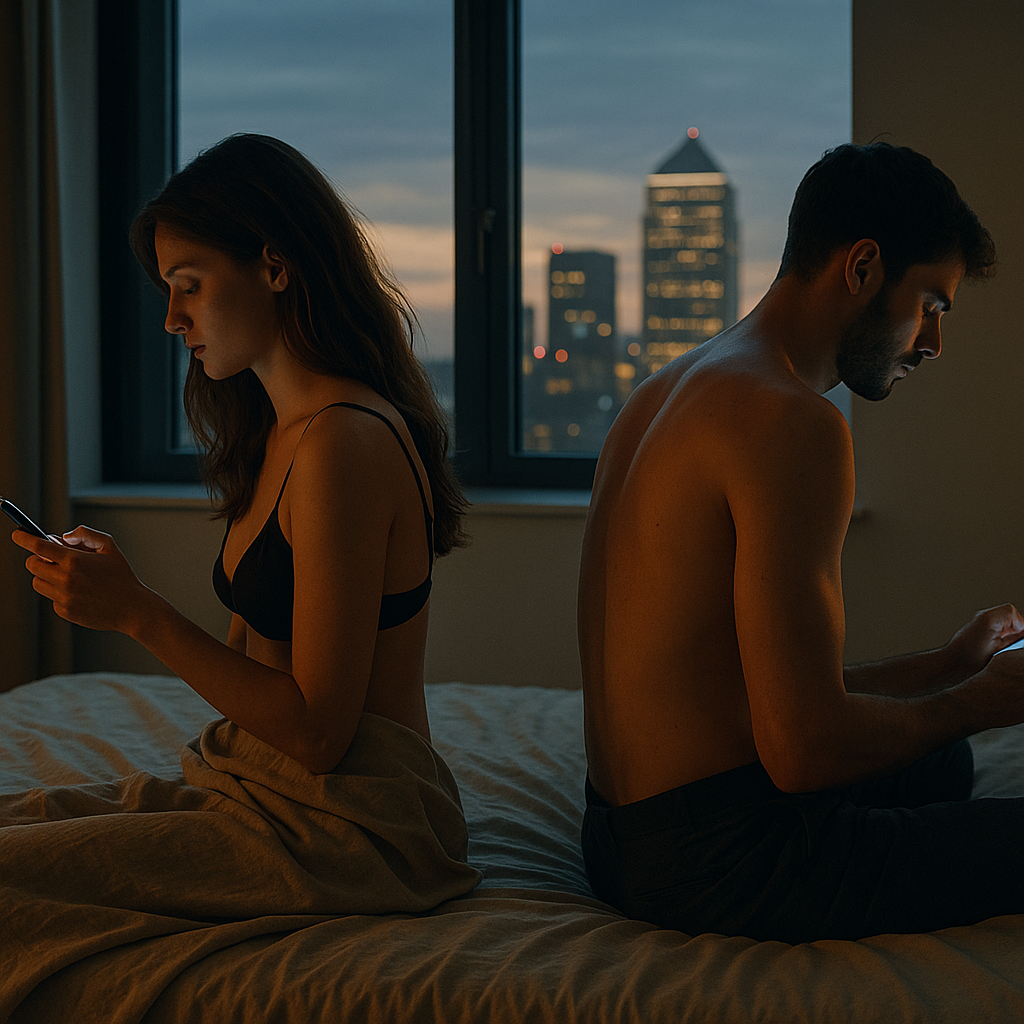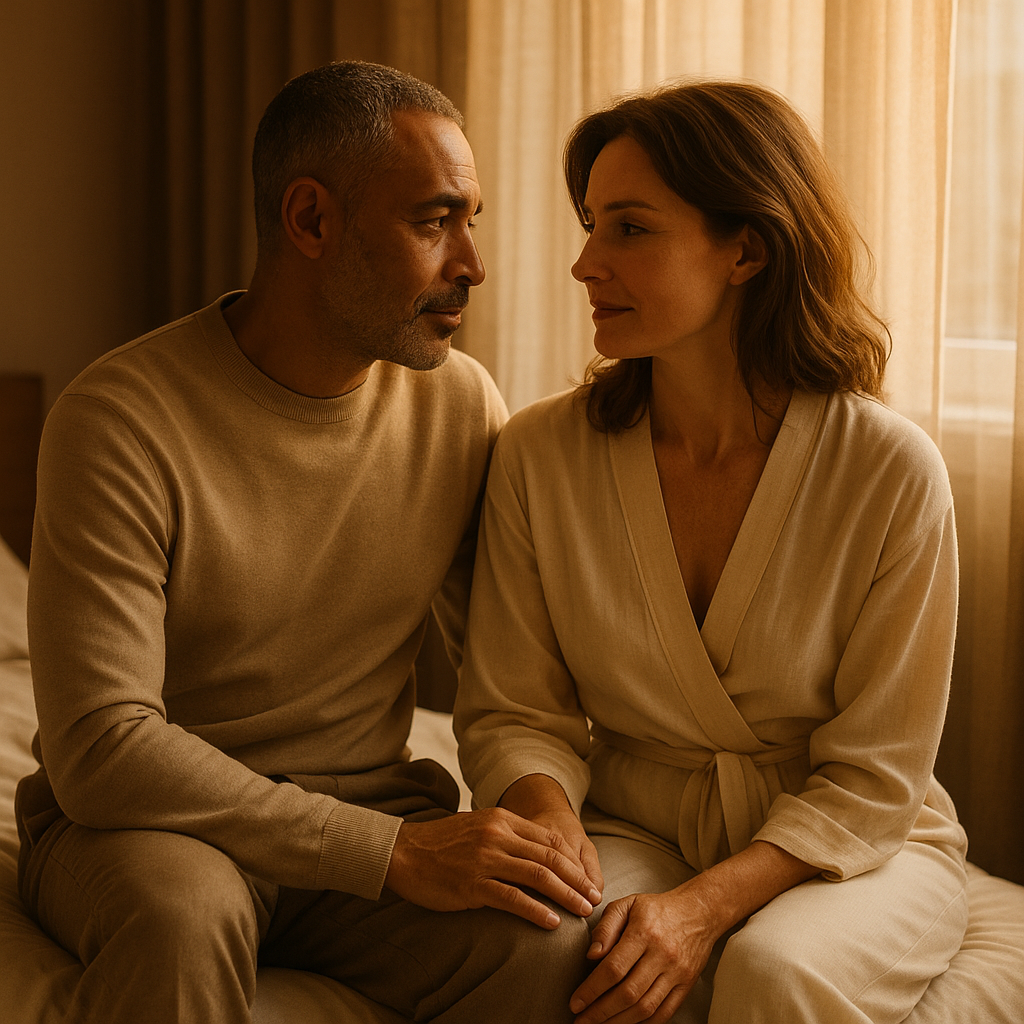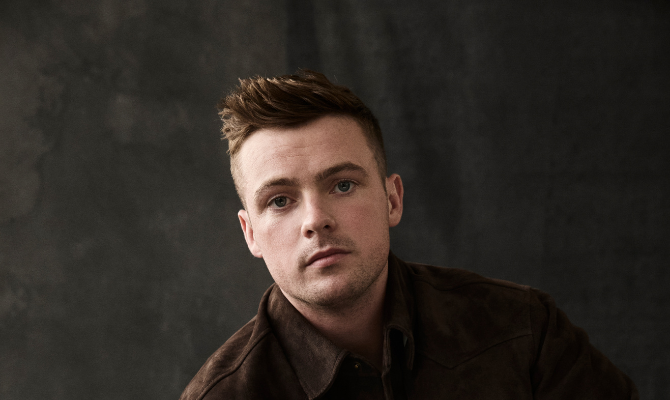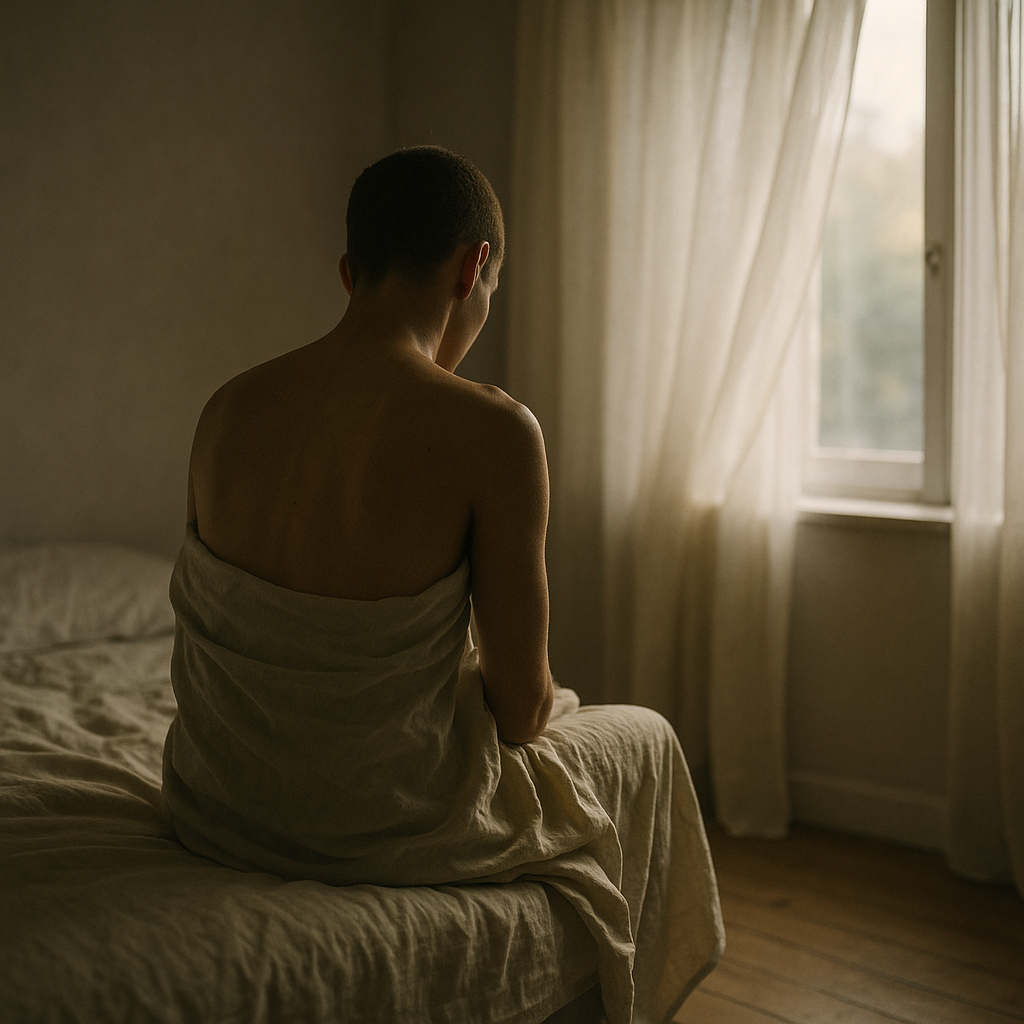Charlie Rowe’s career has been a testament to versatility, spanning historical dramas, biographical films, and sci-fi thrillers. From embodying real-life figures like Ray Williams in Rocketman to stepping into the intricate world of Wolf Hall: The Mirror and The Light as Gregory Cromwell, Rowe brings depth and authenticity to every role. In this exclusive interview, he reflects on the challenges of portraying historical and fictional characters, his early start in the industry with icons like Daniel Craig, and the lessons learned from working alongside legends like Gary Oldman. Discover how Charlie Rowe continues to evolve as an actor and creator, with upcoming roles and passions that showcase his dynamic range.
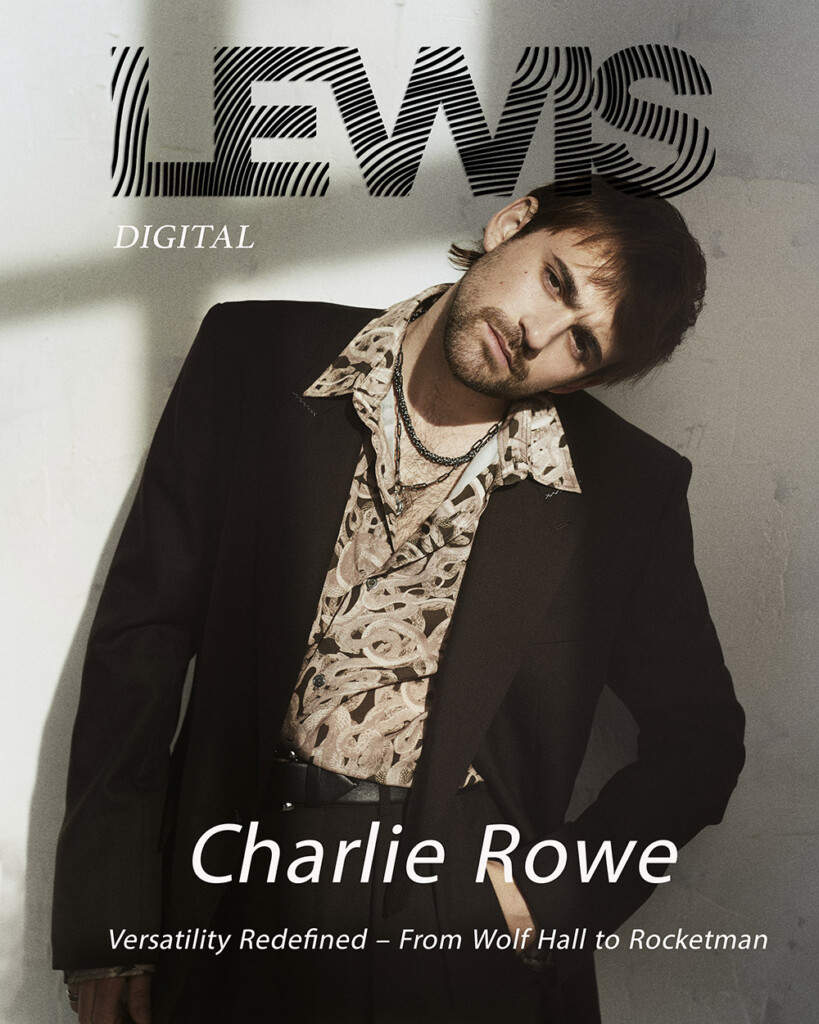
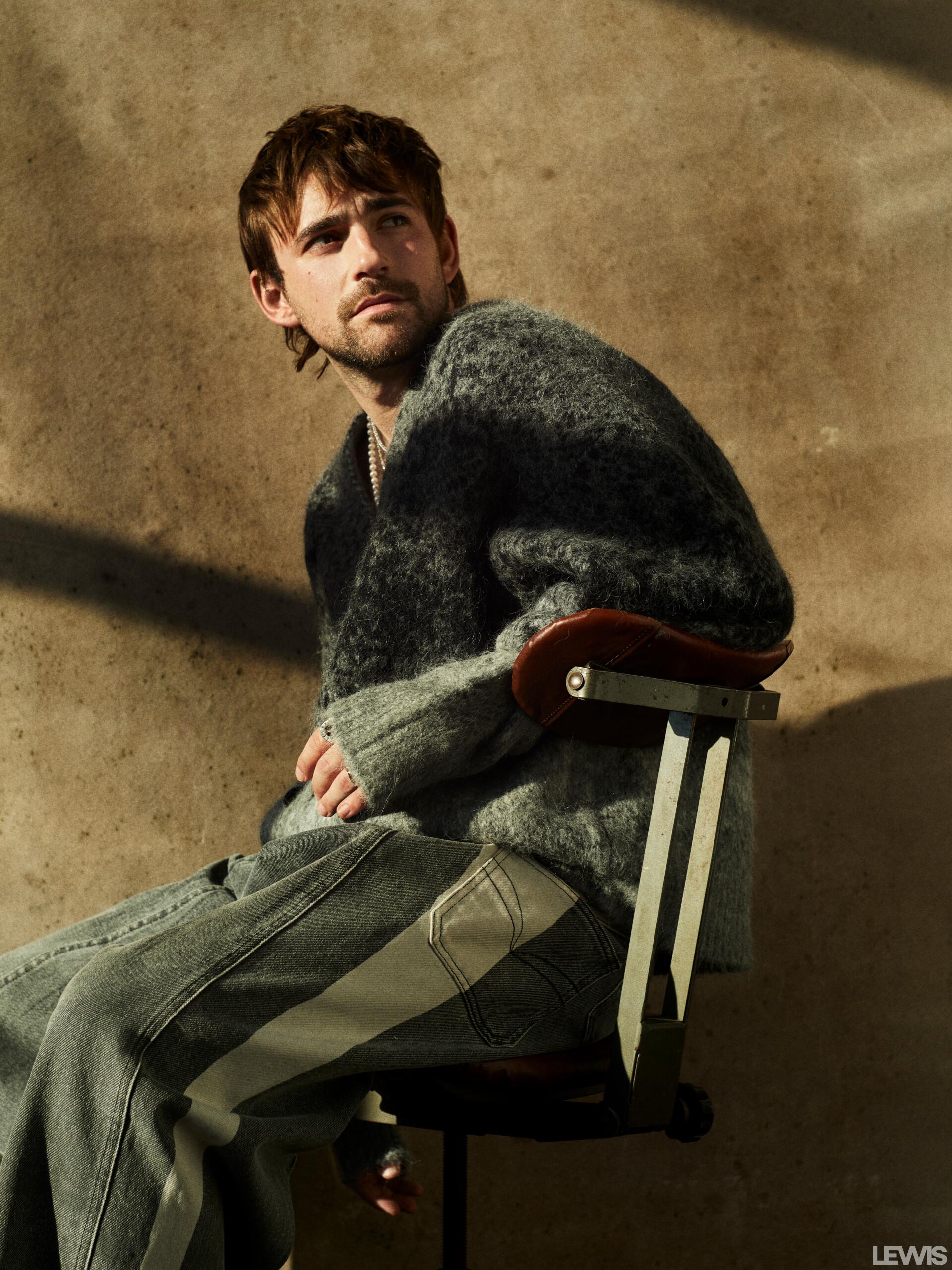
Full Look Feng Chen Wang – Shoes Axel Arigato – Socks Falke – Necklaces The Diamond Store, Loveness Lee – Rings left to right AKVA, Rat Betty, Pyrrha, Clarke Palmer
1. You’ve portrayed real-life figures like Ray Williams in Rocketman. How do you approach bringing real people to life on screen, and what unique challenges does that present compared to fictional characters?
When portraying a real-life figure, the process is similar to playing a fictional character, but with a greater focus on gathering facts and staying true to their life story. You’re responsible for accurately representing their legacy, but it’s equally important to give your imagination space to shape the character. While you must respect the real-life details, such as physical traits and key events, you also need to find the emotional truth of the person. The challenge lies in balancing the facts with your instincts as an actor, ensuring the performance is both faithful and emotionally authentic. Ultimately, it’s about capturing the spirit of the person while adding your own creative interpretation. I don’t like rigidity.
With someone like Ray Williams, it was important to grasp the essence of who he was within the framework of Rocketman’s narrative. It wasn’t just about mimicking his appearance or voice; it was about portraying his role in Elton John’s life—his support and his belief in Elton when he needed it most. You want to honour the truth of who they were while also fitting into the wider narrative that the film is trying to tell.
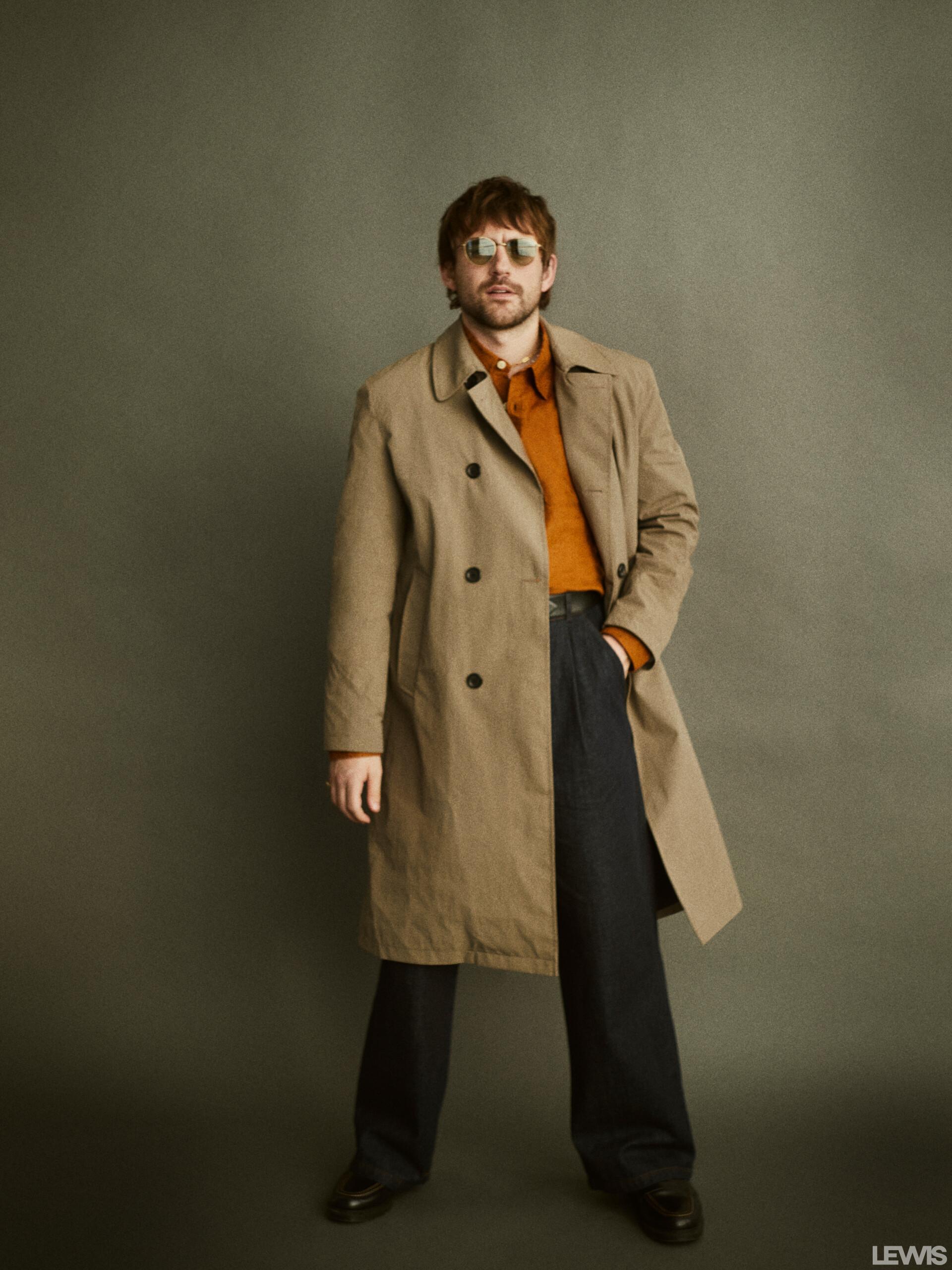
Full Look Oliver Spencer – Shoes Oliver Spencer – Socks Falke – Belt J & M Davidson – Necklaces A Sinner in Pearls, Clarke Palmer – Rings Pyrrha, TwoJeys – Sunglasses Oliver Peoples
2. In Wolf Hall: The Mirror and The Light, you play Gregory Cromwell alongside Mark Rylance. What was it like stepping into a historical drama of such magnitude, and how did you prepare to portray the son of such a pivotal character?
It was an honour to step into the world of Wolf Hall. It was also nerve-wracking, given the calibre of both the British acting talent and the film crew, as well as the weight of the story’s historical significance. You certainly feel that sense of gravity when you’re on set. My approach was to prepare as thoroughly as possible—gathering all the information I could about my character—and then turn up to set ready to learn. I was fortunate to have many scenes with Mark, and I simply tried to soak in everything I could from the experience.
Bringing Gregory to life involved piecing together every detail I could find. I read extensively, followed every lead, and let the historical fragments guide me. In the end, I even drove to Launde Abbey to soak up Gregory’s home and final resting place firsthand. My thanks to everyone at Launde Abbey for the gracious and spontaneous tour—it added a powerful layer to understanding Gregory’s world.
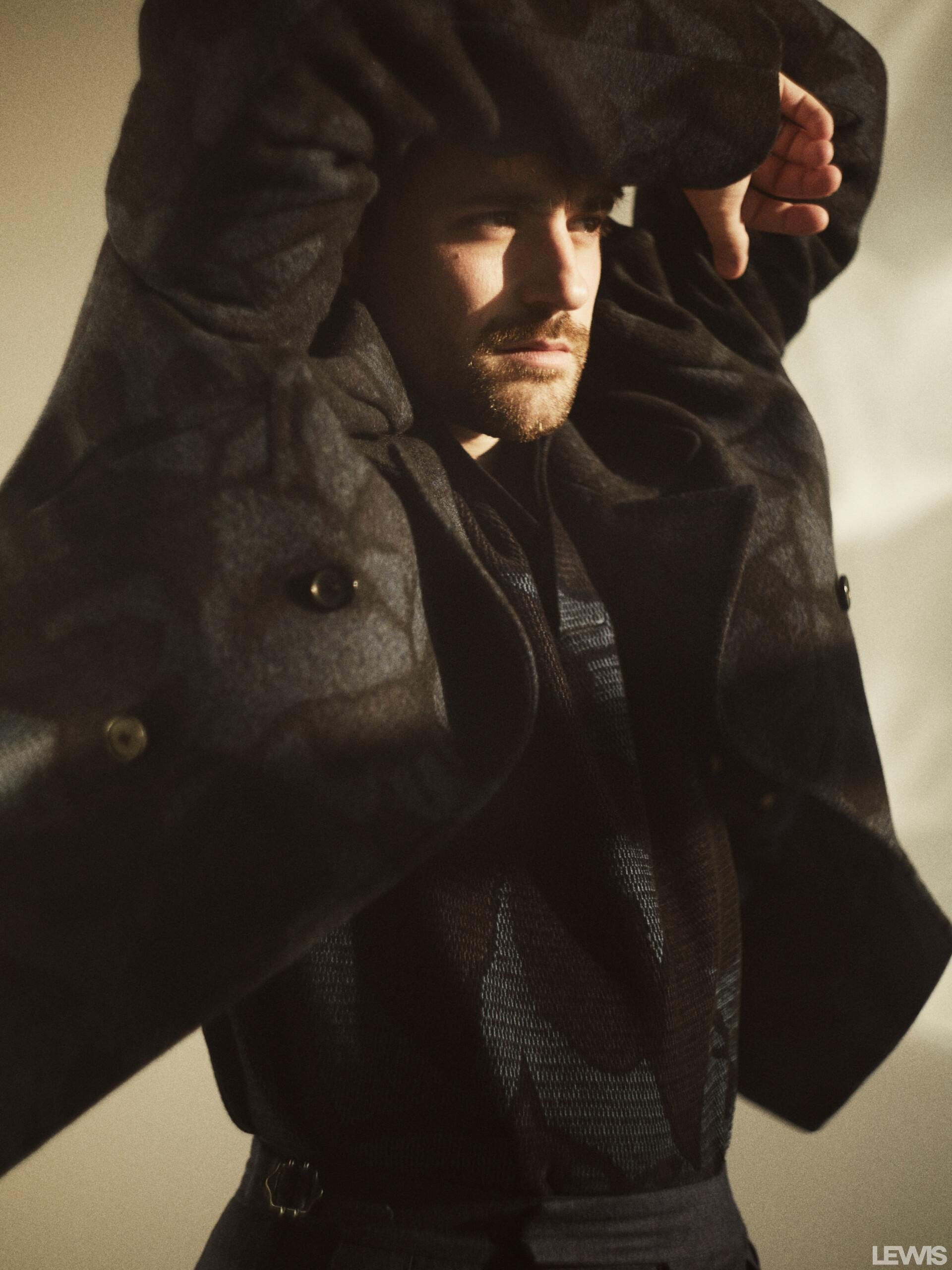
Full Look Paul Smith – Shoes Paul Smith – Socks Falke – Necklaces Pyrrha,Thomas Sabo, AKVA – Rings left to right Pyrrha, AKVA – Bracelets Thomas sabo
3. Starting your acting career at the age of 9 with stars like Daniel Craig and Nicole Kidman in The Golden Compass, how has working from such a young age influenced your perspective on the film industry and your approach to acting?
Starting my career at such a young age with such iconic stars an eye-opening experience. It showed me early on that anything was possible in this industry, and it left me with a belief that no dream was too big. I often find myself trying to reconnect with that younger version of myself—the child who was full of freedom, spontaneity, and unfiltered excitement for the craft. That foundation has had a lasting influence on my approach to acting, reminding me to stay grounded, open, and fearless in embracing the challenges of each role.
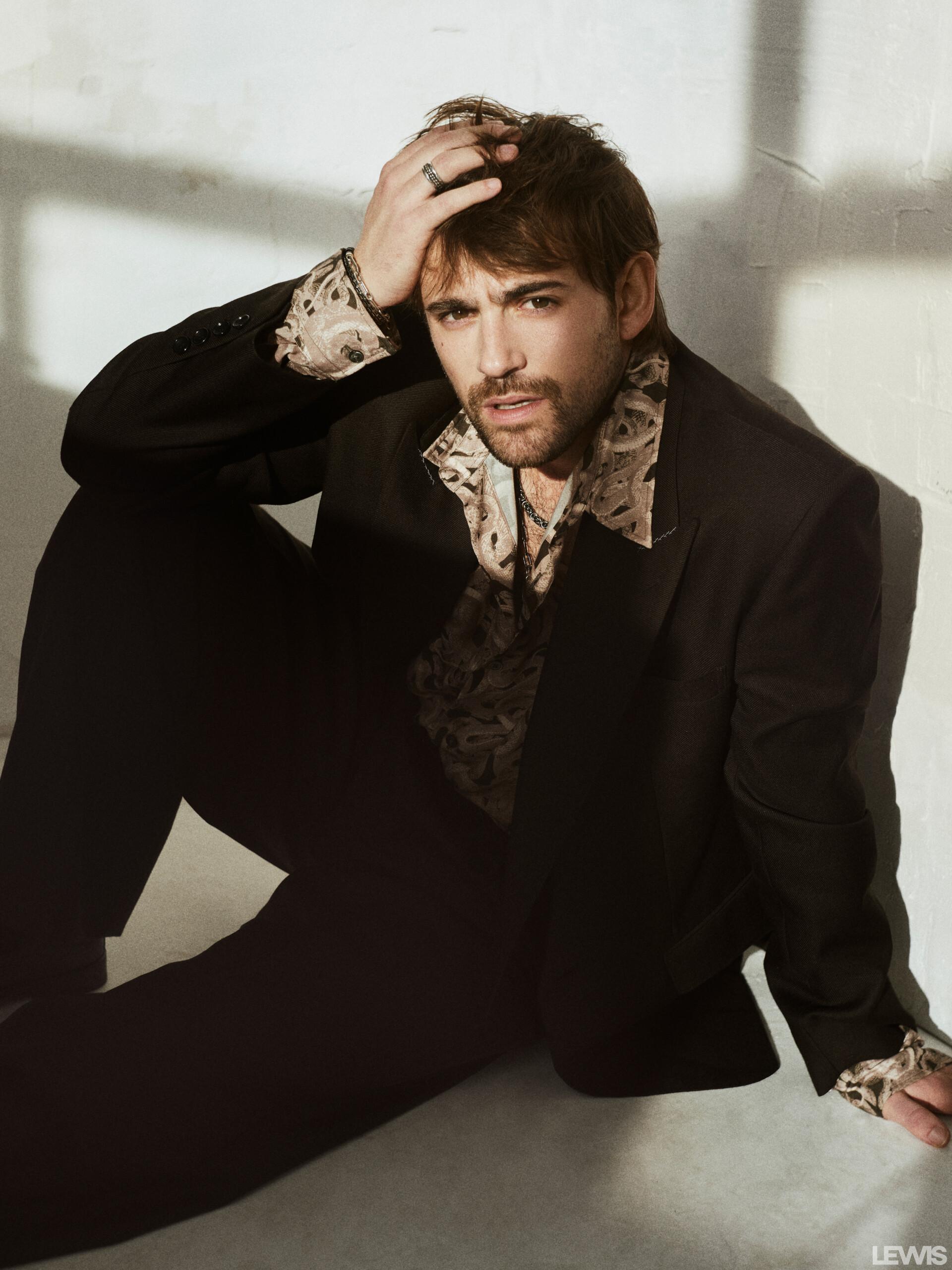
Full Look John Lawrence Sullivan – Soes Manolo Blahnik -Socks Falke – Belt J&M Davidson – Sunglasses Akila – Necklaces Pyrrha, Annabel B – Bracelets Thomas Sabo – Rings left to right Pyrrha, Rat Betty
4. You’re set to appear alongside George Clooney, Adam Sandler, and Laura Dern in Noah Baumbach’s Jay Kelly. Can you share any insights about this project and what it means to you to work with such an acclaimed ensemble cast?
I’m not sure how much I’m allowed to reveal just yet! What I can say is that shooting in both London and Italy was incredible. And working with such an esteemed ensemble cast was truly inspiring. While I’ll leave the major details to the bigwigs, I can share that I had some wonderful, meta scenes that really left me feeling proud of the work. It’s a project I’m grateful to have been a part of, and I’m excited for people to eventually see it.
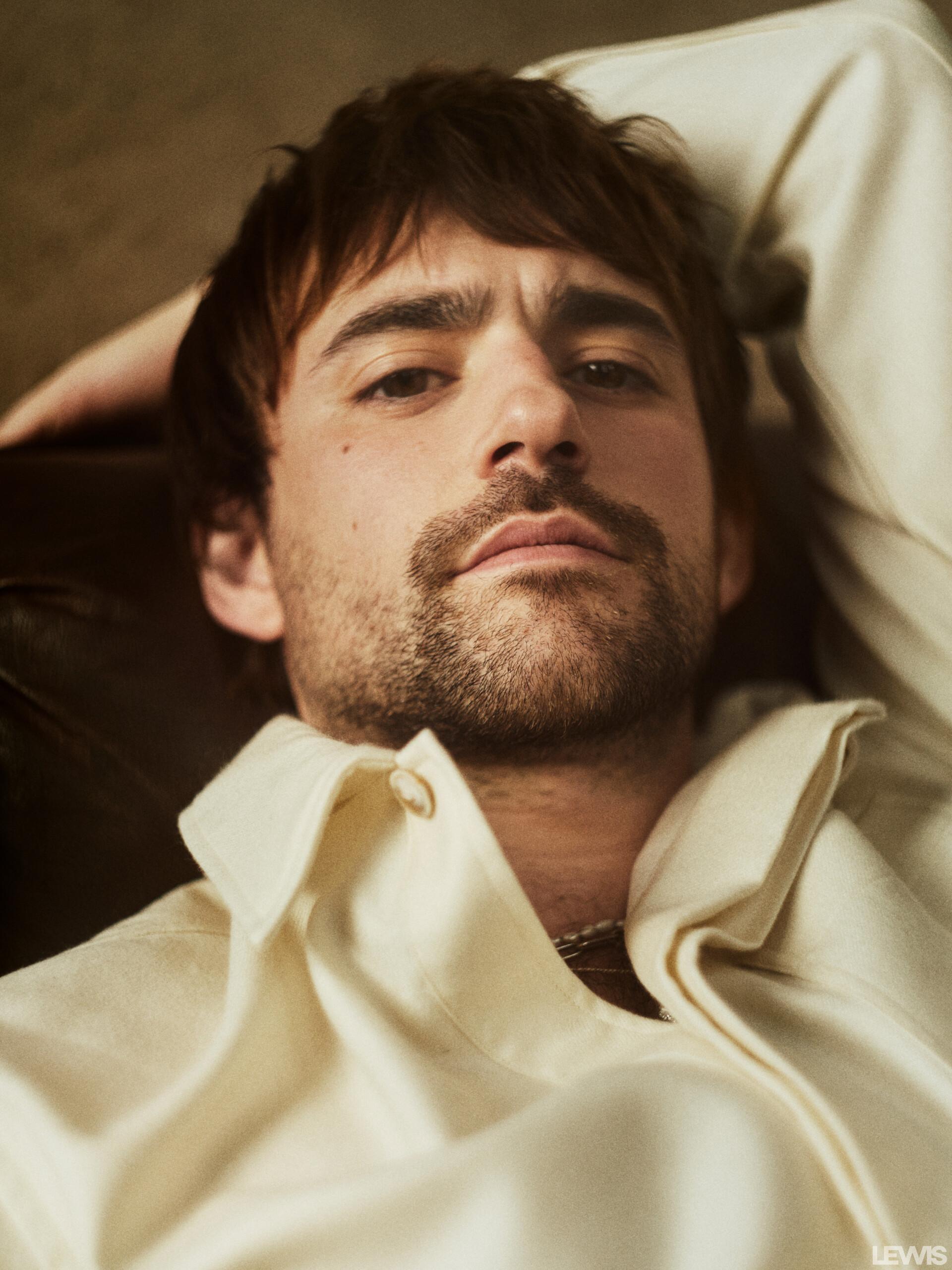
Full Look Brioni – Shoes Ecco – Socks Falke – Necklaces Loveness Lee, Thomas Sabo – Bracelets Thomas Sabo – Rings left to right Pyrrha, Rat Betty, AKVA
5. Having a diverse portfolio that includes historical dramas, sci-fi thrillers, and biographical films, how do you select your projects, and what draws you to a particular role or genre?
I’d be lying if I said I have the luxury to pick and choose every project. But I do have a mental checklist of key aspects that guide my decisions, and genre is rarely a top priority. What matters most to me is the character, the story, and the team behind the project. If the role feels like it challenges me or aligns with something I’m passionate about, that’s what draws me in. The people I get to work with—whether it’s the director, fellow cast members, or the crew—also plays a significant part in my decision-making process.
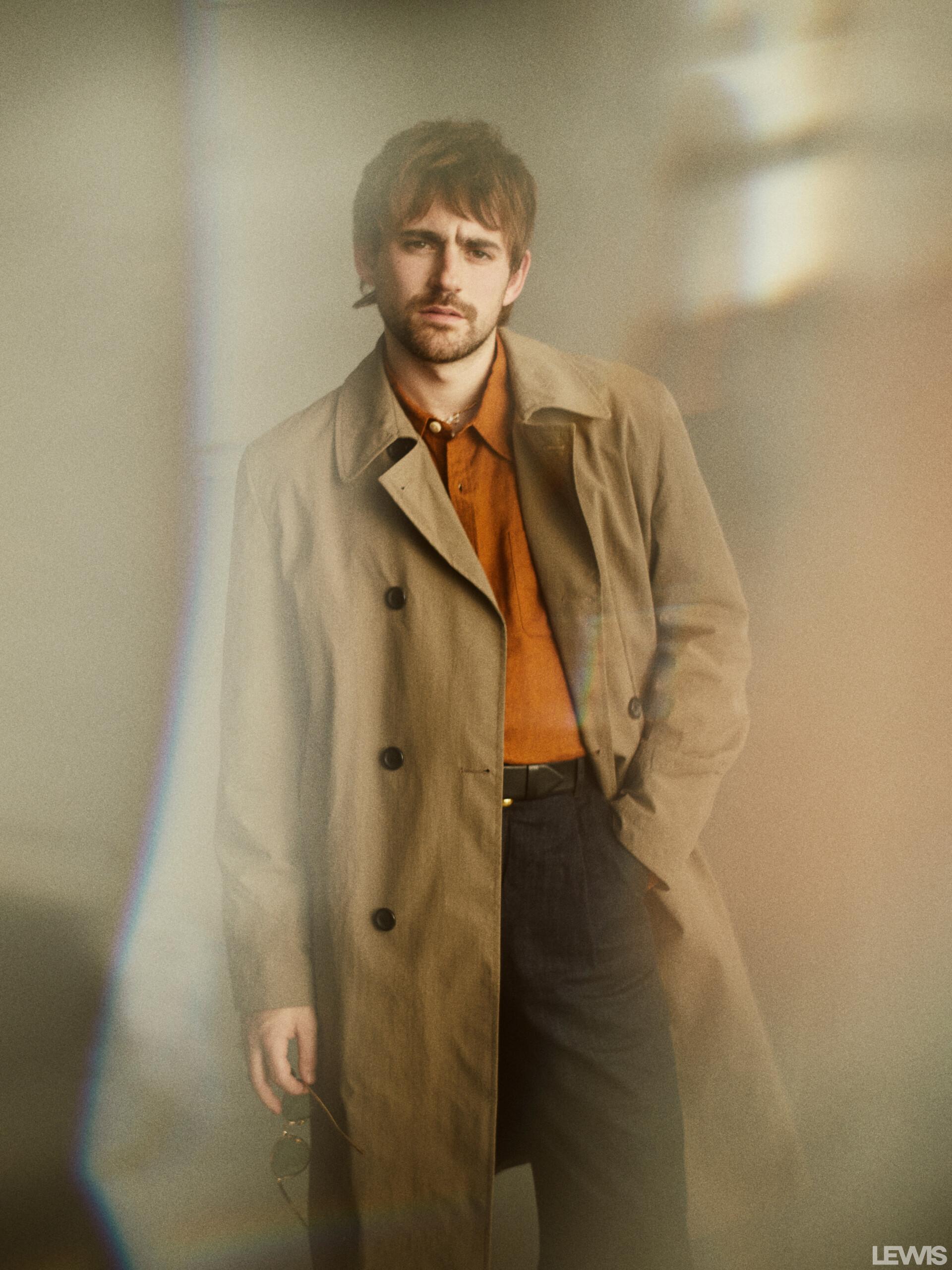
Full Look Oliver Spencer – Shoes Oliver Spencer – Socks Falke – Belt J & M Davidson – Necklaces A Sinner in Pearls, Clarke Palmer – Rings Pyrrha, TwoJeys – Sunglasses Oliver Peoples
6. In Slow Horses, you worked with acting legends like Gary Oldman. What lessons or techniques did you pick up from collaborating with such seasoned actors, and how have they influenced your craft?
There’s so much I could say, but one standout lesson from working with Gary Oldman—who I didn’t have any scenes with—was his incredible generosity. Despite not sharing screen time, he took the time to talk and connect with me. That gesture alone taught me a valuable lesson in how important it is for experienced actors to be aware of their influence on younger actors and to offer their time and wisdom. It’s a reminder of the power of kindness and mentorship in our craft.
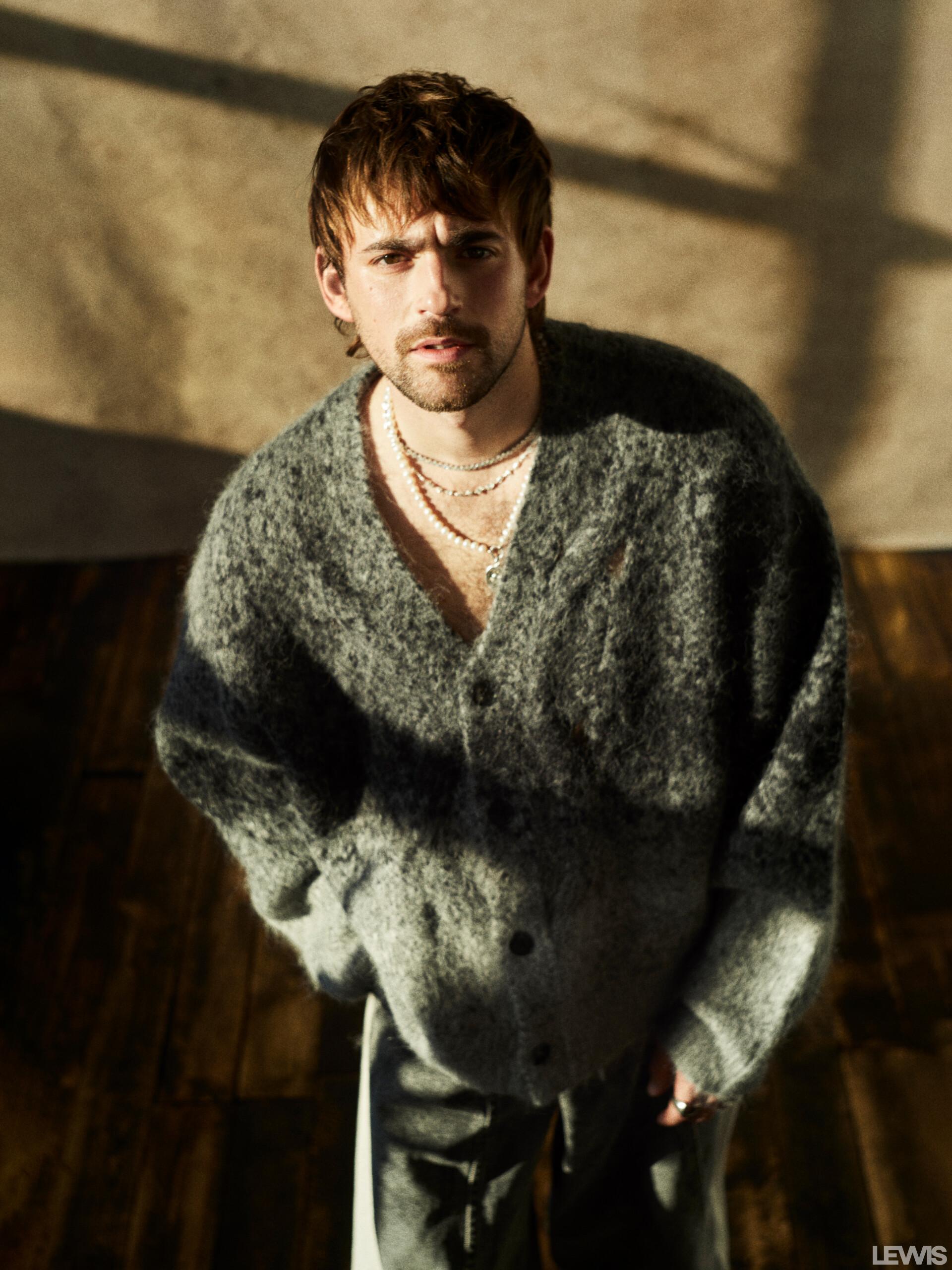
Full Look Feng Chen Wang – Shoes Axel Arigato – Socks Falke – Necklaces The Diamond Store, Loveness Lee – Rings left to right AKVA, Rat Betty, Pyrrha, Clarke Palmer
7. With upcoming roles in both television and film that span different time periods and settings, how do you adapt your acting techniques to authentically represent characters from various eras?
Adapting to different time periods feels like a natural process, often influenced by the environment. For instance, in Wolf Hall, we shot on location in buildings that certain characters actually lived in during the 16th century. The atmosphere of these spaces—the smells, the echoes of your boots in the corridors—subtly influences your performance. Costumes and sets play a huge role too, as they help transport you into the era. It’s not just about wearing the right clothes, but about how they affect your posture and movement. The little details of a location—the way light falls on a room, or the sounds of the place—help ground your character in that world. All these elements combine to shape the way you portray a character, making it feel authentic without even thinking about it. It’s a seamless way to embody someone from a different time.
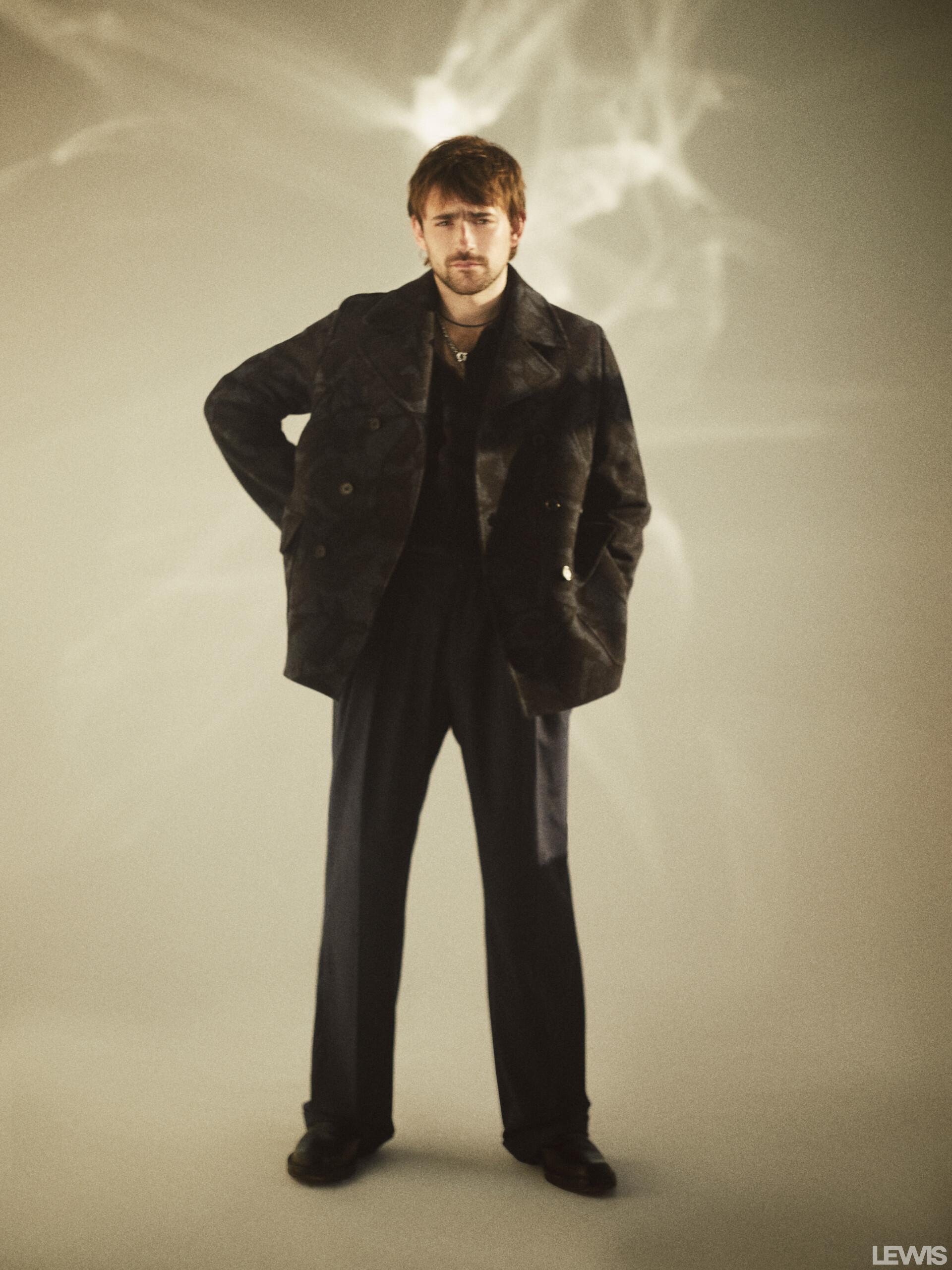
Full Look Paul Smith – Shoes Paul Smith – Socks Falke – Necklaces Pyrrha,Thomas Sabo, AKVA – Rings left to right Pyrrha, AKVA – Bracelets Thomas sabo
8. Reflecting on your career so far, what’s been the most challenging role you’ve undertaken, and how did it push you as an actor?
Every role comes with its challenges, and I always hope to be pushed in new ways. However, Vanity Fair stands out as particularly tough. It was one of my first experiences playing a character I found difficult to like, which forced me to dig deeper and become more empathetic. It was a real exercise in understanding motivations and seeing the humanity in someone who might seem unlikable on the surface. That role pushed me to explore the complexities of human nature and how to bring nuance to characters, even when they don’t immediately resonate with you.
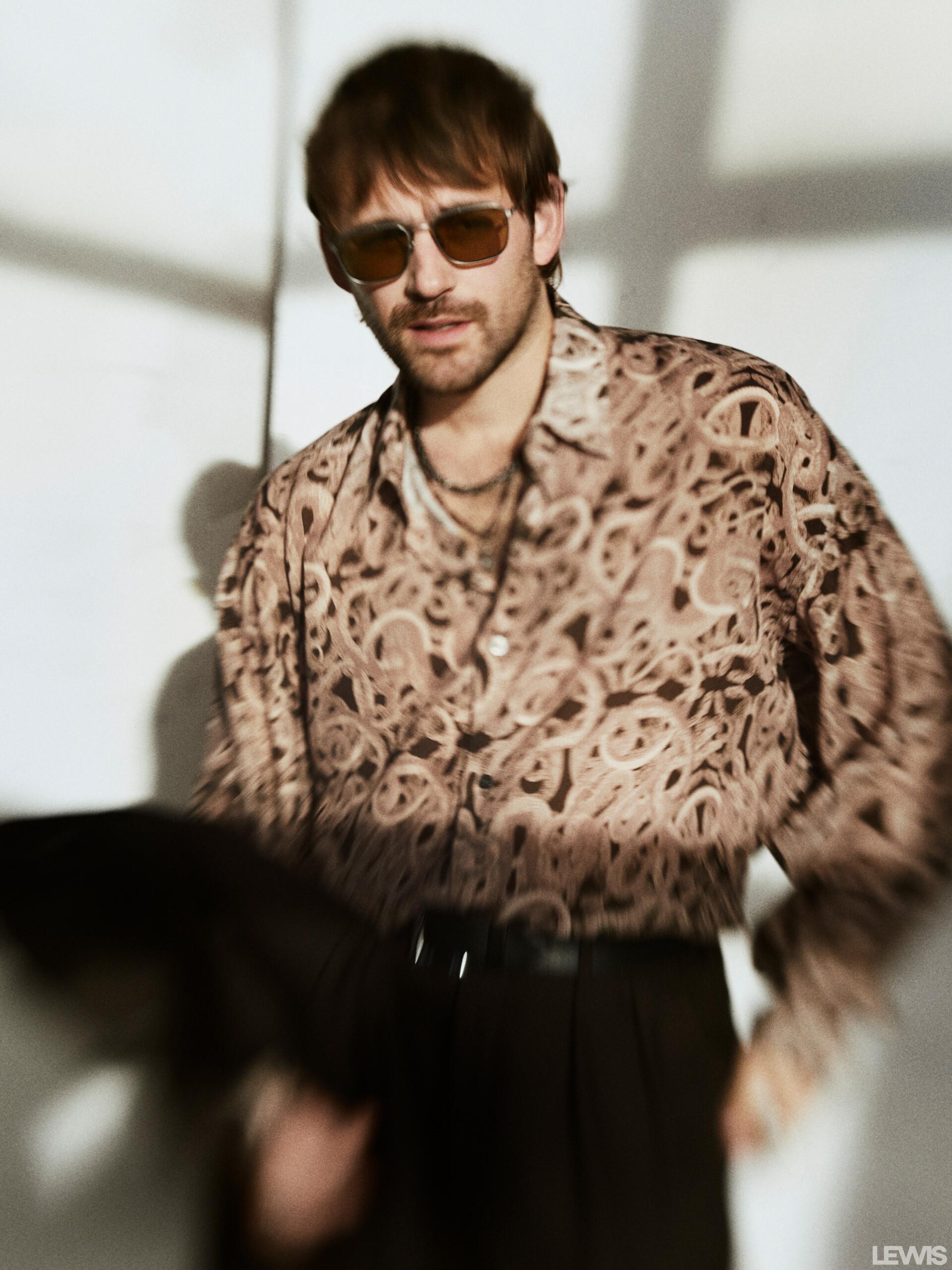
Full Look John Lawrence Sullivan – Soes Manolo Blahnik -Socks Falke – Belt J&M Davidson – Sunglasses Akila – Necklaces Pyrrha, Annabel B – Bracelets Thomas Sabo – Rings left to right Pyrrha, Rat Betty
9. As someone who began acting at a young age, what advice would you give to aspiring actors navigating today’s industry, and how do you maintain your passion and authenticity in a rapidly evolving entertainment landscape?
There’s no clear path in this industry, and it’s full of uncertainty. It ebbs and flows, and there’s no real answer to “why” certain projects or people take off. My advice is to go easy on yourself. The most important thing is to fuel your own passion and love for the craft. Create your own work, stay true to your vision, and don’t lose sight of the joy it brings. Remember to enjoy the process as much as you can, because staying connected to that genuine excitement is what will carry you through.
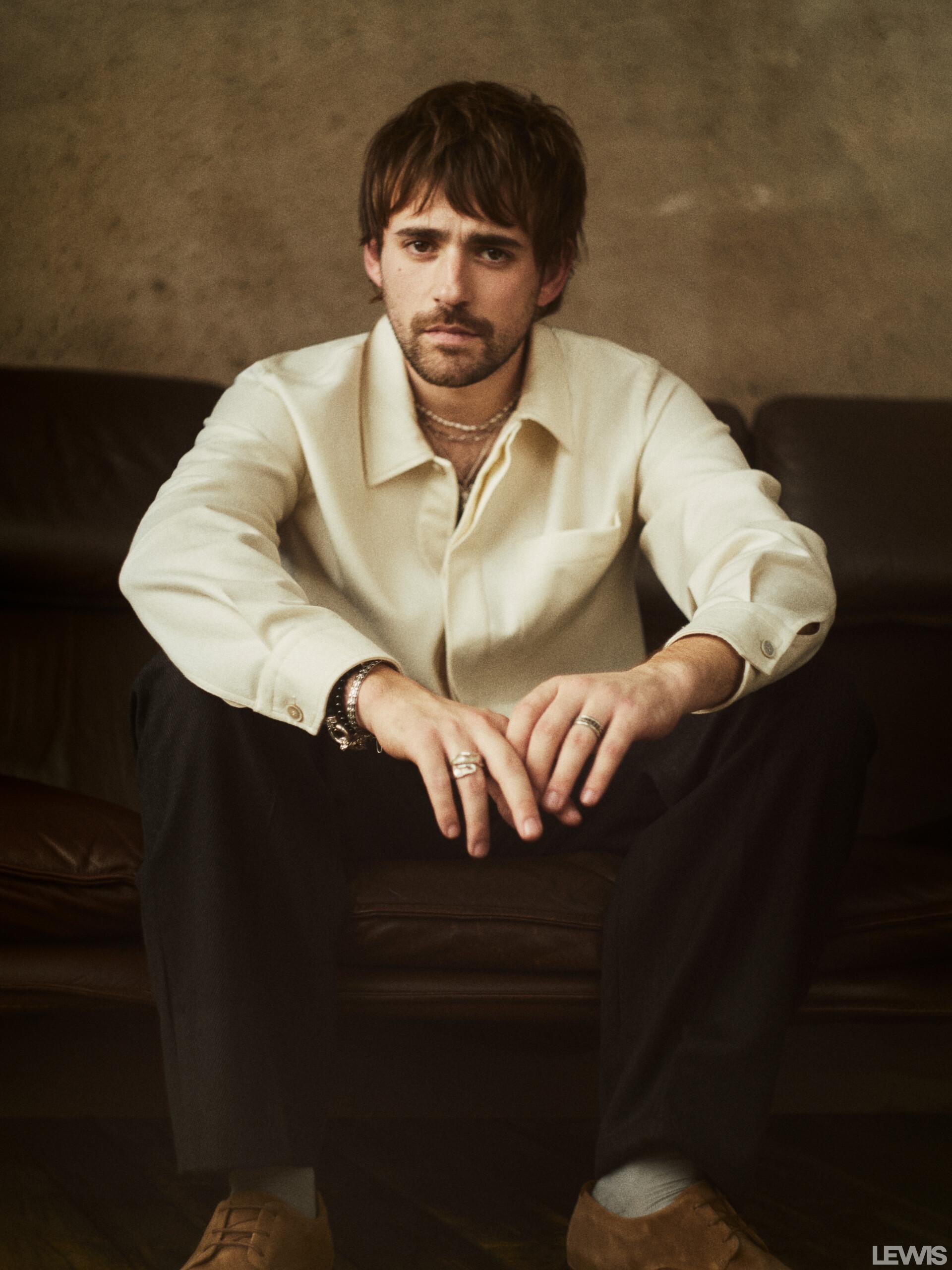
Full Look Brioni – Shoes Ecco – Socks Falke – Necklaces Loveness Lee, Thomas Sabo – Bracelets Thomas Sabo – Rings left to right Pyrrha, Rat Betty, AKVA
10. What are some of your passions outside of acting? Are there any causes or personal interests you’d like to pursue further?
I also play music—I released a folk-rock-ish EP titled Grapefruit earlier in 2024. If you’re interested, do give it a listen! I’m planning to record and perform more soon. In addition to that, I’m writing and creating short films. My debut, The Natural, is just finishing its festival run for the year and will soon be available online for everyone to enjoy. At the moment, I’m slowly working on another one.
For me, it’s all about music and film. Oh, and lists—I’m quite passionate about making them. I have far too many—films, restaurants, you name it. Letterboxd has definitely been stealing hours of my time too!
- Full Look Oliver Spencer – Shoes Oliver Spencer – Socks Falke – Belt J & M Davidson – Necklaces A Sinner in Pearls, Clarke Palmer – Rings Pyrrha, TwoJeys – Sunglasses Oliver Peoples
- Full Look Oliver Spencer – Shoes Oliver Spencer – Socks Falke – Belt J & M Davidson – Necklaces A Sinner in Pearls, Clarke Palmer – Rings Pyrrha, TwoJeys – Sunglasses Oliver Peoples
- Full Look Oliver Spencer – Shoes Oliver Spencer – Socks Falke – Belt J & M Davidson – Necklaces A Sinner in Pearls, Clarke Palmer – Rings Pyrrha, TwoJeys – Sunglasses Oliver Peoples
- Full Look Oliver Spencer – Shoes Oliver Spencer – Socks Falke – Belt J & M Davidson – Necklaces A Sinner in Pearls, Clarke Palmer – Rings Pyrrha, TwoJeys – Sunglasses Oliver Peoples
- Full Look Oliver Spencer – Shoes Oliver Spencer – Socks Falke – Belt J & M Davidson – Necklaces A Sinner in Pearls, Clarke Palmer – Rings Pyrrha, TwoJeys – Sunglasses Oliver Peoples
- Full Look Feng Chen Wang – Shoes Axel Arigato – Socks Falke – Necklaces The Diamond Store, Loveness Lee – Rings left to right AKVA, Rat Betty, Pyrrha, Clarke Palmer
- Full Look Feng Chen Wang – Shoes Axel Arigato – Socks Falke – Necklaces The Diamond Store, Loveness Lee – Rings left to right AKVA, Rat Betty, Pyrrha, Clarke Palmer
- Full Look Paul Smith – Shoes Paul Smith – Socks Falke – Necklaces Pyrrha,Thomas Sabo, AKVA – Rings left to right Pyrrha, AKVA – Bracelets Thomas sabo
- Full Look John Lawrence Sullivan – Soes Manolo Blahnik -Socks Falke – Belt J&M Davidson – Sunglasses Akila – Necklaces Pyrrha, Annabel B – Bracelets Thomas Sabo – Rings left to right Pyrrha, Rat Betty
- Full Look Brioni – Shoes Ecco – Socks Falke – Necklaces Loveness Lee, Thomas Sabo – Bracelets Thomas Sabo – Rings left to right Pyrrha, Rat Betty, AKVA
- Full Look Brioni – Shoes Ecco – Socks Falke – Necklaces Loveness Lee, Thomas Sabo – Bracelets Thomas Sabo – Rings left to right Pyrrha, Rat Betty, AKVA
Photographer: David Reiss
Stylist: Chalisa Guerrero
Groomer: Terri Capon @stellacreativeartists
Fashion Assistants: Kay Ferguson, Amanda Flor
Talent: Charlie Rowe @pinnaclepruk












